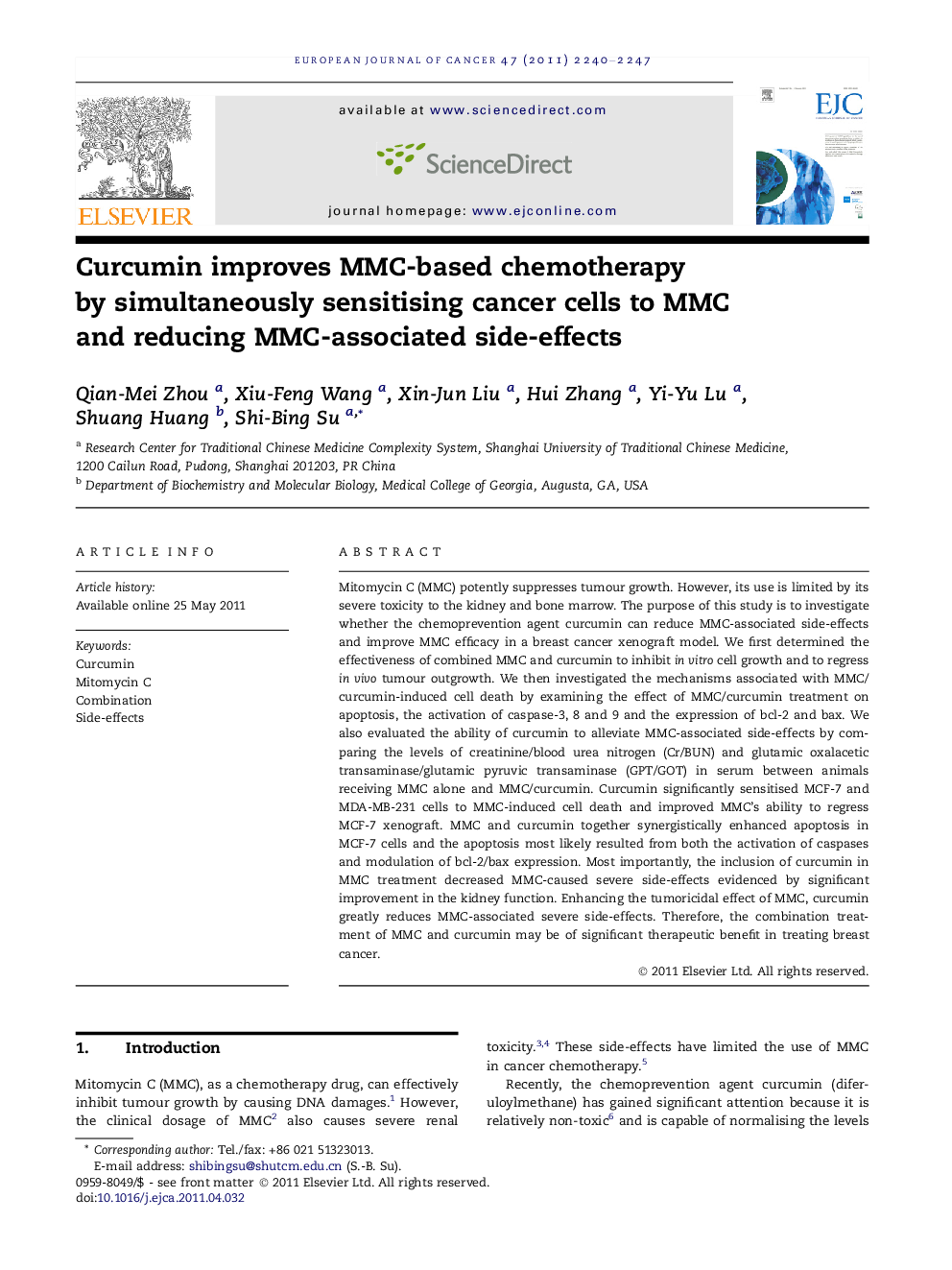| Article ID | Journal | Published Year | Pages | File Type |
|---|---|---|---|---|
| 8447396 | European Journal of Cancer | 2011 | 8 Pages |
Abstract
Mitomycin C (MMC) potently suppresses tumour growth. However, its use is limited by its severe toxicity to the kidney and bone marrow. The purpose of this study is to investigate whether the chemoprevention agent curcumin can reduce MMC-associated side-effects and improve MMC efficacy in a breast cancer xenograft model. We first determined the effectiveness of combined MMC and curcumin to inhibit in vitro cell growth and to regress in vivo tumour outgrowth. We then investigated the mechanisms associated with MMC/curcumin-induced cell death by examining the effect of MMC/curcumin treatment on apoptosis, the activation of caspase-3, 8 and 9 and the expression of bcl-2 and bax. We also evaluated the ability of curcumin to alleviate MMC-associated side-effects by comparing the levels of creatinine/blood urea nitrogen (Cr/BUN) and glutamic oxalacetic transaminase/glutamic pyruvic transaminase (GPT/GOT) in serum between animals receiving MMC alone and MMC/curcumin. Curcumin significantly sensitised MCF-7 and MDA-MB-231 cells to MMC-induced cell death and improved MMC's ability to regress MCF-7 xenograft. MMC and curcumin together synergistically enhanced apoptosis in MCF-7 cells and the apoptosis most likely resulted from both the activation of caspases and modulation of bcl-2/bax expression. Most importantly, the inclusion of curcumin in MMC treatment decreased MMC-caused severe side-effects evidenced by significant improvement in the kidney function. Enhancing the tumoricidal effect of MMC, curcumin greatly reduces MMC-associated severe side-effects. Therefore, the combination treatment of MMC and curcumin may be of significant therapeutic benefit in treating breast cancer.
Related Topics
Life Sciences
Biochemistry, Genetics and Molecular Biology
Cancer Research
Authors
Qian-Mei Zhou, Xiu-Feng Wang, Xin-Jun Liu, Hui Zhang, Yi-Yu Lu, Shuang Huang, Shi-Bing Su,
